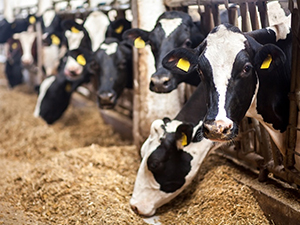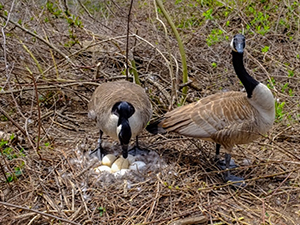Keeping Ponds & Lakes Clean from Geese
Jun 20, 2023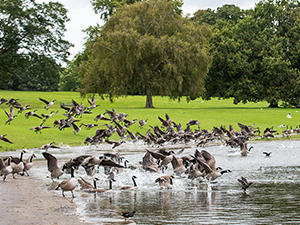
The Canada goose population across North America is booming, with some estimates of over 5 million birds.
When searching for a place to call home, those millions of geese favor locations with grass to eat, water to drink, and clear lines of sight that allow them to spot predators.
Unfortunately, those qualities are also commonly found in areas where humans also like to gather, including lakes, ponds and decorative fountains – and the parks, walking paths and golf courses that surround them.
When these areas become overrun with geese, the quality of water often declines steeply.
How Canada Geese Lower Water Quality
A single adult goose produces an average of 2 pounds of feces per day. Multiply that number by an entire flock of geese and you are left with… a lot of goose poop.
To make matters worse, many Canada geese no longer migrate annually. That means piles of goose droppings are no longer just a seasonal issue. The year-round presence of goose poop isn’t just aggravating and unsightly – it also has a marked negative impact on bodies of water and the soil that surrounds them.
Beyond causing water quality to plummet, the cumulative effect of all that goose poop can lead to algal blooms and other plant overgrowth, declining fish populations, and the erosion of pond shorelines.
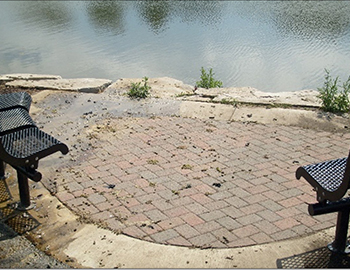
Goose feces littering a brick patio near a pond
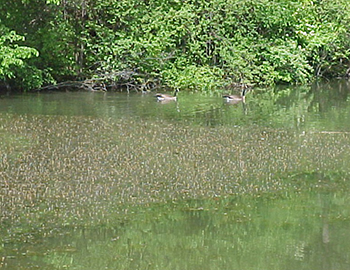
Plant overgrowth in a pond
Maintaining Healthy Water Quality
Removing algae or plant matter once it has accumulated will temporarily clean up water. But, if geese aren’t expelled – and are therefore allowed to continue to deposit feces —water quality issues will quickly return.
The best way to keep water clean is by deterring geese and keeping them away. Luckily, several effective solutions exist. These include:
Dog Services
Trained border collies do an excellent job of physically removing geese from a targeted area. They mimic a predator’s gaze and posture to intimidate geese into vacating the premises. The service works best if it is performed before geese have settled into or nested in a location.
Other Deterrent Strategies
Noise makers, repellants and laser systems can encourage geese to leave an area.
Egg Depredation
If the number of geese on a property becomes unmanageable, egg depredation may be the most effective solution. Egg depredation, also called nest management, prevents eggs from hatching and culls a goose population.
Modified Landscaping
For those who prefer lower intervention strategies, clever landscaping can help.
Geese favor short grass, which is better for feeding and visibility. Allowing shoreline grass to grow to at least three inches may help to deter geese. If grass can’t grow high enough, native plants may be planted near the shoreline. Plants can help prevent erosion (especially at beaches) and act as a natural barrier to feces entering water via runoff.
Pond fencing can also help keep geese away and encourage them to find a different water source.
Protect Water Quality from Geese by Partnering with an Expert
If Canada geese have negatively impacted your water quality, Migratory Bird Management can help. Our experts have decades of experience managing Canada geese and other nuisance birds with humane, effective and cost-effective solutions.
Schedule a site evaluation or contact us today to learn more about how to keep water clean with goose control and management services.
Contact us to learn more about Canada goose control solutions
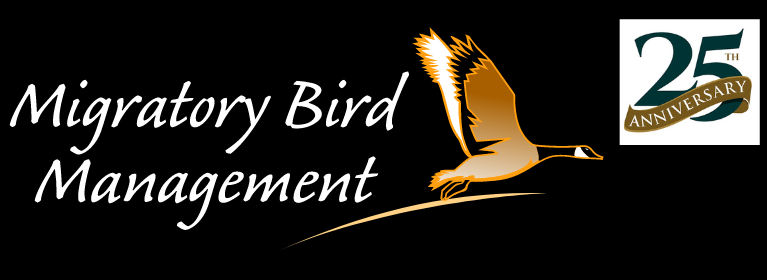


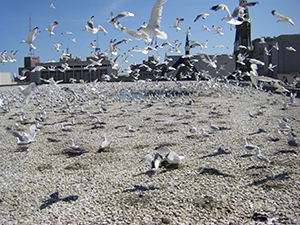
 0
0